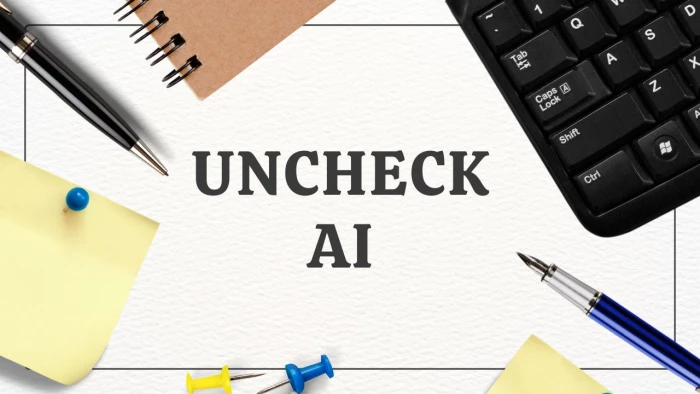

I’ve been writing professionally for years, but the rise of AI detectors has added a new layer of stress. Even when my content is authentic, I’ve seen it flagged as “AI-generated.” That’s when I first came across Uncheck AI—a tool that promises to “humanize” text and make it undetectable. But does it actually work, or is it just another patch in an already confusing system? Here’s my honest breakdown.
AI detectors like Originality.ai, GPTZero, and Turnitin were built to maintain integrity in schools, workplaces, and publishing. But here’s the catch: they’re not perfect. Research shows false positives can happen in up to 15–20% of cases, meaning real human writing can get mislabeled as AI.
For students, that can mean academic penalties. For freelance writers, it can mean losing client trust. For SEO bloggers, it could lead to rejected partnerships. No wonder people are searching for ways to “bypass” these systems.
This is where Uncheck AI enters the picture. Marketed as a humanizer, it claims to transform AI-generated text into something indistinguishable from human writing. The website even promises it can bypass top detectors like Turnitin and GPTZero.
I didn’t approach it as a magic wand but as a reflection of a bigger problem: writers are anxious, and tools like Uncheck AI are born out of that anxiety.
From the Uncheck AI site, here’s what stood out:
On paper, it sounds like a shield for nervous writers. But does the shield hold up in real-world tests?
_1757922469.webp)
I took a short essay paragraph generated by ChatGPT and passed it through Uncheck AI in different modes. The results?
This doesn’t mean it never works—some users on Reddit claim they’ve passed Turnitin with it. But “sometimes” isn’t good enough if your academic record or professional credibility is on the line.
Turnitin and GPTZero are two of the biggest names in AI detection. Uncheck AI specifically advertises itself as being able to bypass both.
In my experience, it failed against GPTZero—it still flagged as “Probably AI.”
Turnitin bypass success seems to vary. Some students report passing, others don’t.
The inconsistency is the real issue. If a bypass tool works 50% of the time, that’s basically the same as gambling with your future.
_1757922519.webp)
Uncheck AI has a pricing page that offers:
Free Plan: Limited word usage per month.
Basic & Pro Plans: More words, faster processing, access to different modes.
“Unlimited Plan”: Supposedly removes limits, but reviews on Trustpilot suggest billing and refund issues cause frustration.
In my opinion, the free plan is fine for experimenting. But unless the bypass success rate improves, paying for higher tiers feels risky.
Beyond the hit-or-miss detection bypass, there are a few drawbacks I’ve noticed:
Superficial rewrites: Often change words, not meaning.
Billing complaints: Multiple users report refund difficulties.
False sense of security: Passing once doesn’t guarantee future success.
For writers, this means you might feel “safe,” but in reality, you’re still exposed.
One of Uncheck AI’s promises is that it creates “SEO-friendly” writing. But here’s the truth: Google doesn’t rank content based on whether it’s AI or human—it ranks based on helpfulness and originality.
If you use Uncheck AI just to “beat detectors” without adding value, you’re unlikely to see SEO success. In fact, Google’s guidelines warn against low-value content, regardless of who (or what) wrote it.
Here’s what most bypass tool sites won’t say:
Academic Risk: If caught, using bypass tools can be treated as misconduct.
Professional Risk: Clients may see it as dishonesty.
Data Privacy: Pasting sensitive documents into third-party tools carries exposure risk.
The trade-off is clear: temporary peace of mind versus long-term trust.
Instead of chasing “undetectable AI,” I recommend alternatives that don’t involve bypass gimmicks:
These won’t guarantee invisibility, but they guarantee credibility.
If I’m honest, Uncheck AI is not for everyone. But there are scenarios where it might help:
For anyone seeking guaranteed bypass, though, it’s unreliable.
After testing and reflecting, I’ve come to one conclusion: Uncheck AI is more of a mirror than a solution. It reflects our collective anxiety about AI detection, but it doesn’t fully solve it.
For me as a writer, the long-term answer isn’t making writing “invisible.” It’s making it authentic. AI can be a great assistant, but the credibility comes from my own insights, stories, and voice—things no bypass tool can replicate.
Be the first to post comment!